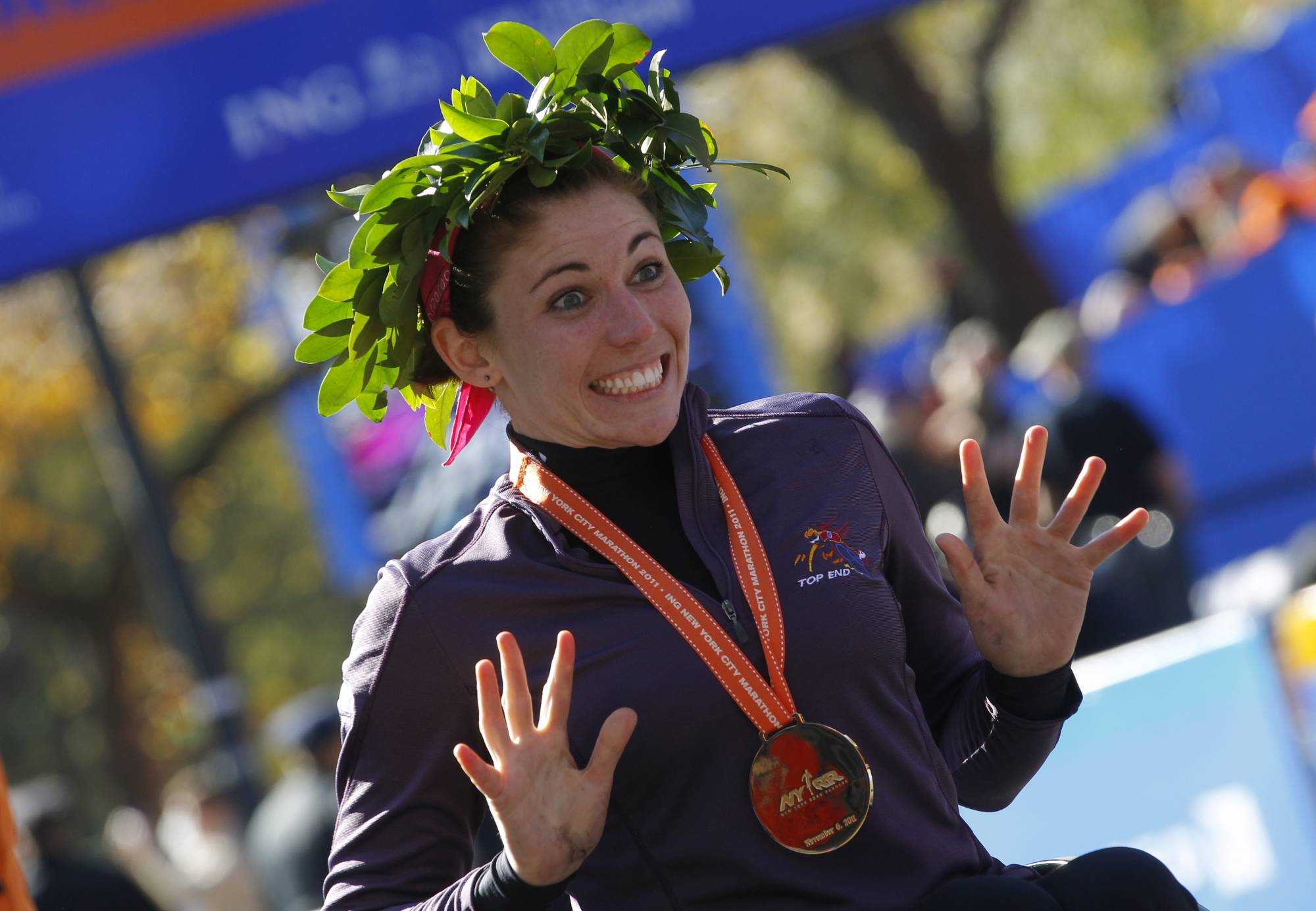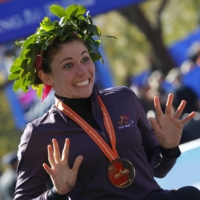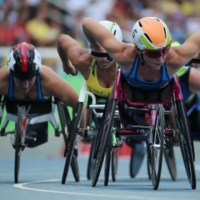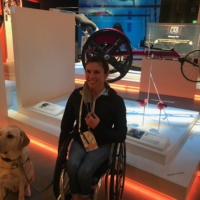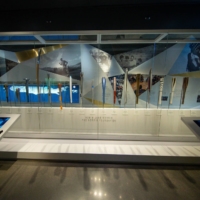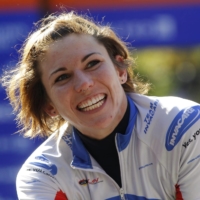As a full-time archivist with the U.S. Olympic and Paralympic Committee, Amanda McGrory works to document the history of the Games, cataloging its extensive collection of items and hunting for potential new treasure troves of information.
But as a longtime para athlete, she’s also writing some of that history herself — something the 35-year-old is reminded of when she sees one particular exhibit at the recently opened U.S. Olympic and Paralympic Museum in Colorado Springs.
“I love going back, learning about the history of the Paralympic movement, of the Olympic Movement, the stories of the athletes, and then walking into the museum and seeing my racing chair, it’s like ... why is this here? This doesn't belong here,” McGrory told The Japan Times on Aug. 18.
“Being a part of the story and also telling the story has been a surreal experience for sure.”
McGrory’s story on the track features seven Paralympic medals — including the 5,000-meter T54 gold at the Beijing Games — as well as wins at the prestigious New York, London and Tokyo marathons.
But the transition to her role at the USOPC — which involved leaving her longtime training base at the University of Illinois’s elite wheelchair athletics program — has given McGrory perspective as she prepares to write the last chapter of her competitive career at the Tokyo Games.
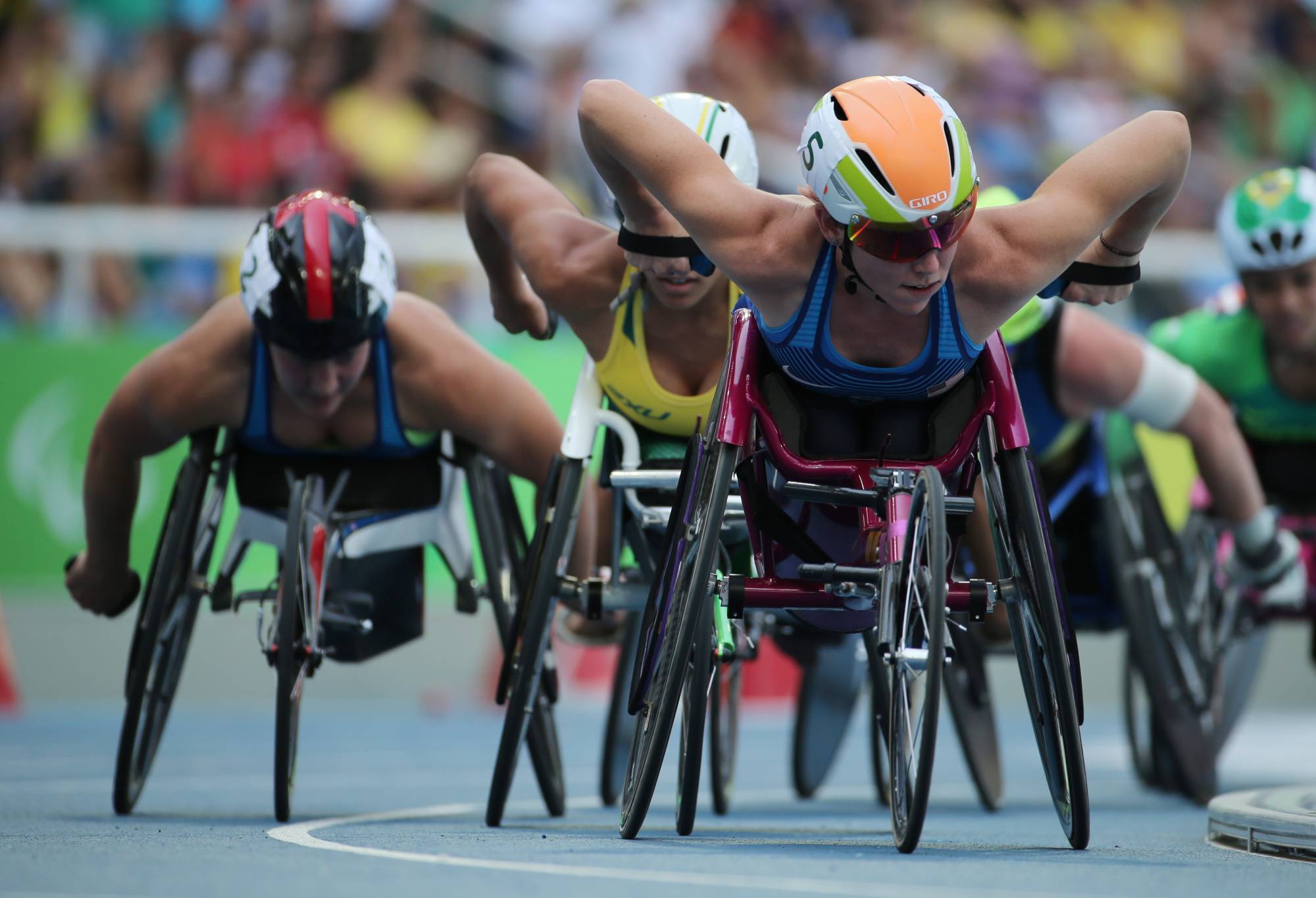
“One of the most appealing parts of taking this position with USOPC was that I could stay involved with the movement, and I could still have a place in that world in a different way than being an elite athlete, because it's a lot and it's a ton of training,” she said.
“For the past 16 years, I've had my coach with me every single day. I've had 10, 20, sometimes 30 of the best wheelchair athletes in the world to train with. And that was a huge part of who I was and what I did.
“I've heard my entire career that you know when it's time — it's just this gut feeling where you feel like, ‘I've been there. I've done that. It's time for something new.’”
In McGrory’s case, “something new” means working to catalog and preserve thousands of items in the USOPC’s archives, ranging from uniforms and bib numbers worn by Olympic athletes to a leaf grown from an oak tree sapling presented to Jesse Owens at the 1936 Summer Games in Berlin.
A native of Chester, Pennsylvania, McGrory says her “lifelong passion” for organization began as a child.
“I'd be sent to my room, and I would reorganize my closet or alphabetize my books,” she said. “It took me a really, really long time to figure out how to get a degree in organization, but I figured it out.”
It was during a class on special collections at the University of Illinois, where she earned her master’s degree in library and information science, that she found her calling.
“The first day we went in and they pulled out a chunk of Gutenberg Bible, the earliest known copies of printed Shakespeare works, super rare like Civil War newspapers. And I was like, ‘This is the coolest thing in the world. And I get to touch it.’”
McGrory’s newfound enthusiasm for curation led to an internship at the USOPC, where among the first items she handled was a shoe worn by Serena Williams at the 2008 Beijing Games. Soon after she was tasked with unpacking a donation of rare Olympic torches — including one of 22 used during the Helsinki relay in 1952 — that are now on display at the museum.
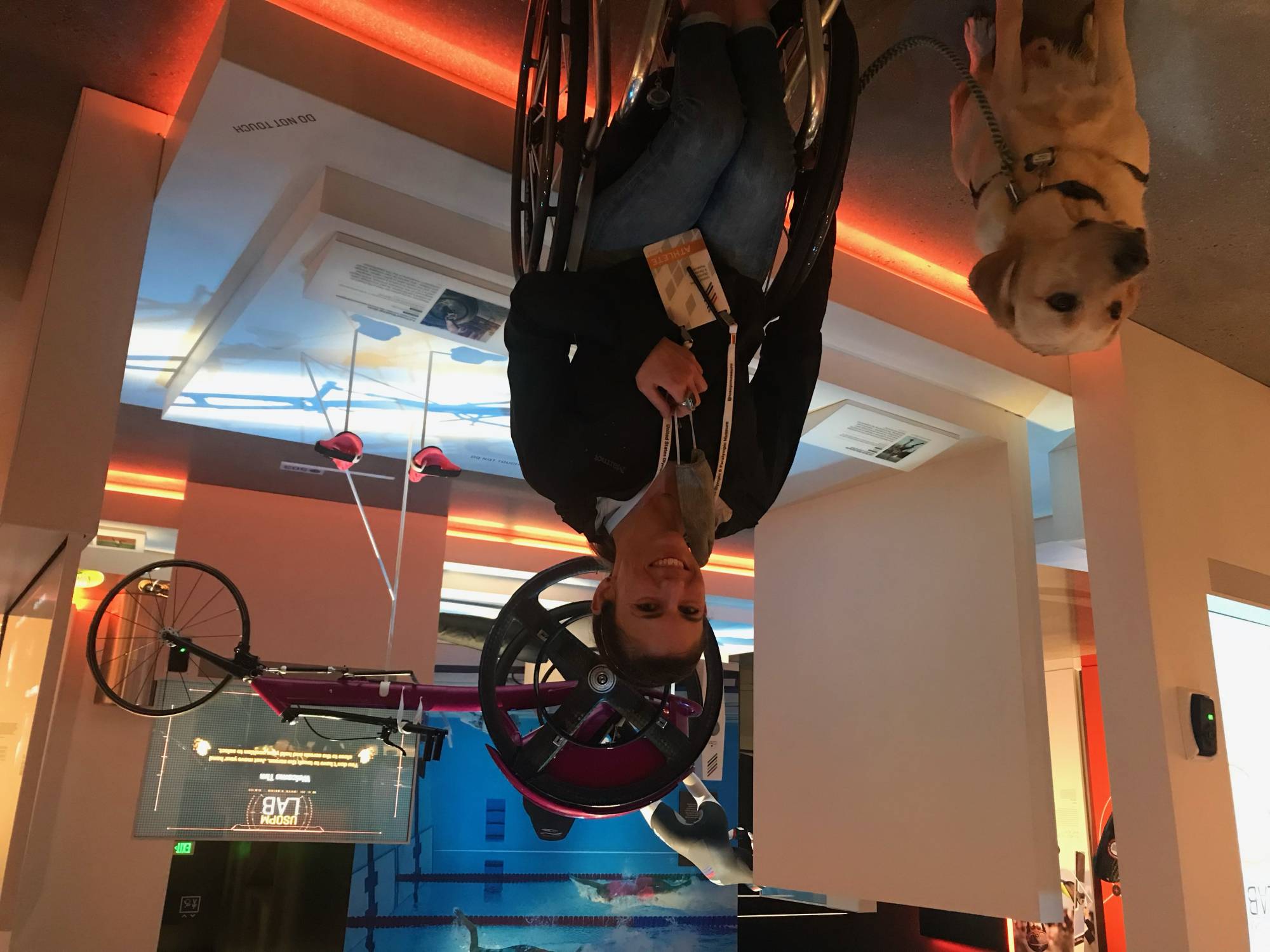
Through the contacts she’s made over her wheelchair racing career, McGrory hopes to assemble the story of the United States’ presences at early Paralympic events, which were overseen not by the USOPC but instead by other adaptive sports associations and nonprofits until 2002.
“Those stories get lost otherwise, unless you have someone whose role it is to preserve that history and do the research and find the stories and share them,” she said. “That history is just scattered everywhere.
“There's a lot here at the University of Illinois, but even finding records for things like flag bearers in the 1990s — it's almost impossible to find, because it's living somewhere in someone's basement or attic, or a storage unit, or got damaged or got thrown away.”
Because the USOPC only accepts donations, the organization must rely on word of mouth — meaning that McGrory is always on the lookout for potential new leads.
“I'll get a phone call from someone who is like, ‘Oh, my grandfather was a 1924 gold medalist in wrestling. Do you want some of this stuff?’ Right after I started I got a call like that,” she said. “And they had the original telegram that he received telling him he made the team and, and that's so cool. But I get how that stuff is lost because you get a telegram, and in 1924 you read it and you toss it.”
McGrory’s association with the University of Illinois began in 2004, when she joined its famed wheelchair athletics program on a scholarship — starting with basketball before moving to the track. The Illinois system, long regarded as the best of its kind in the world, regularly produces many of Team USA’s Paralympians in those disciplines.
“To be a part of this legacy, even in a tiny way, is incredible, just knowing how transformative this program was,” McGrory said. “(From) the way that they changed physical therapy and rehabilitation post-injury to feeling like it was worthwhile to educate individuals with disabilities, to the amount of incredible athletes ... to be one name on that very long list is very cool.
“It feels like you're a part of something bigger than you.”
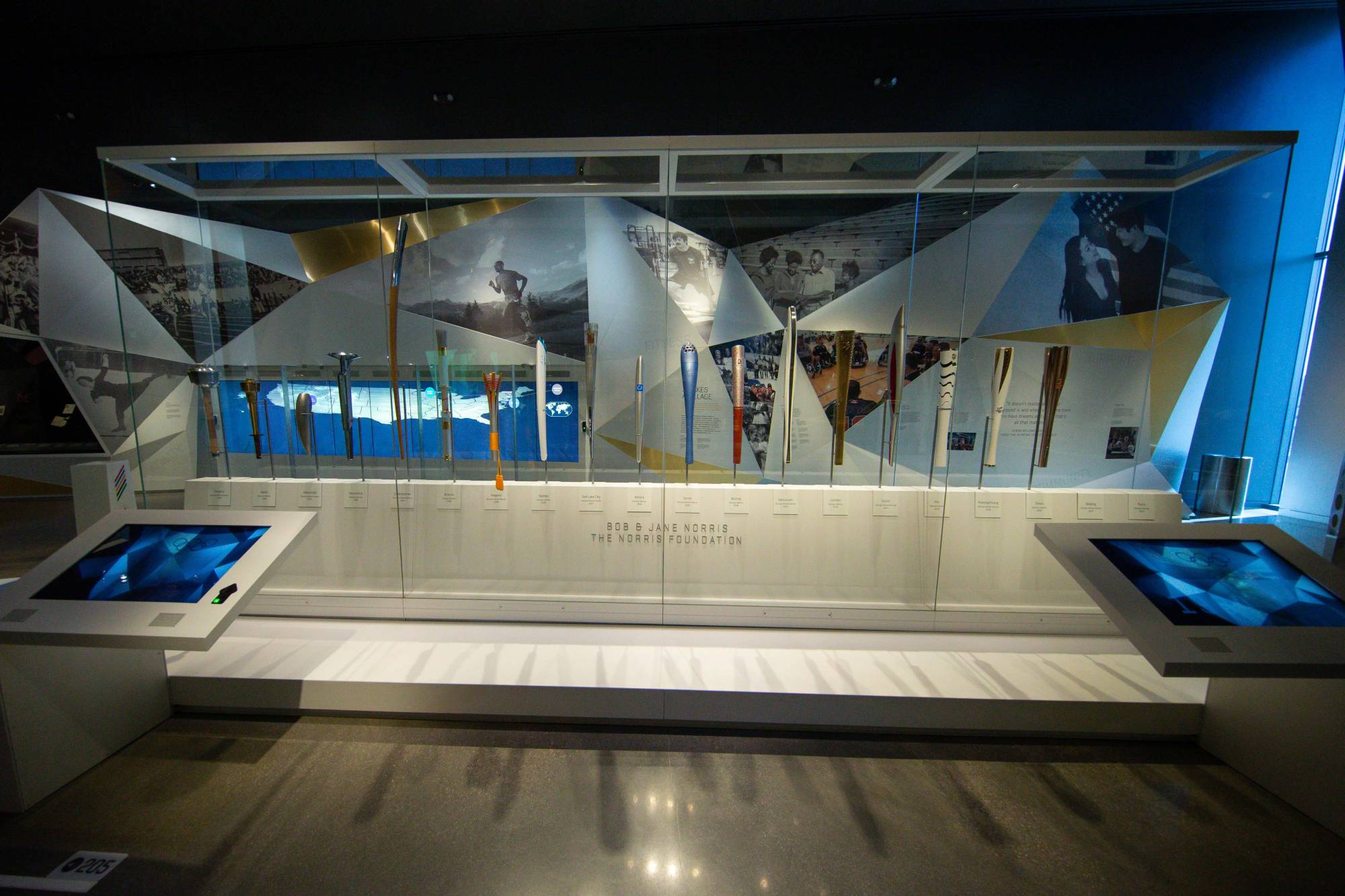
As someone in the unique role of both the curator and the curated, McGrory is acutely aware of — and frustrated by — the tendency to portray para athletes through their impairments.
In particular she notes that while public surveys in the United States show that most associate the Olympics with “strength” and “skill,” the Paralympics are often tied to the concepts of “determination, inspiration (and) motivation.”
“I think that it's really based on societal stigmas and cultural interpretations of disability and what disability is and what that means,” McGrory said. “And because it is seen as a negative, it is seen as something that needs to be overcome.
“If someone finds me inspiring, because something I did is inspiring ... that’s cool. I worked really hard to get here. But the stories that (frustrate) me are just pure inspiration porn ... the stories that are purely based in pity.
“If you think that I am so kickass because I'm pumping my own gas, then you need to think about why that's so inspiring to you ... because you look at me and your expectations for who I am and what I can achieve are so low, that it blows your mind that I'm able to exist.”
After she lost her ability to walk to a rare disorder called transverse myelitis at the age of 5, McGrory herself drew inspiration at a summer camp hosted by Variety, a Philadelphia organization serving children and young adults with disabilities in the region.
“I really struggled as a kid, figuring out where I fit in as a kid with the disability. And I think that going to that camp was the first time where I felt whole,” McGrory said. “Finally getting to see someone else who was like me was pivotal. (It changed) how I felt about myself, and then even how I interacted with my peers and my classmates and my family members moving forward.
“My only experience with disability was inspiration porn stories ... I never met someone who was young and active and healthy. And that changed when I went to that camp. I think it was just kind of this sense of calm, like, ‘I'm going to be okay.’ There's other people out there like me, and they're doing okay, so I'm going to be okay too.”
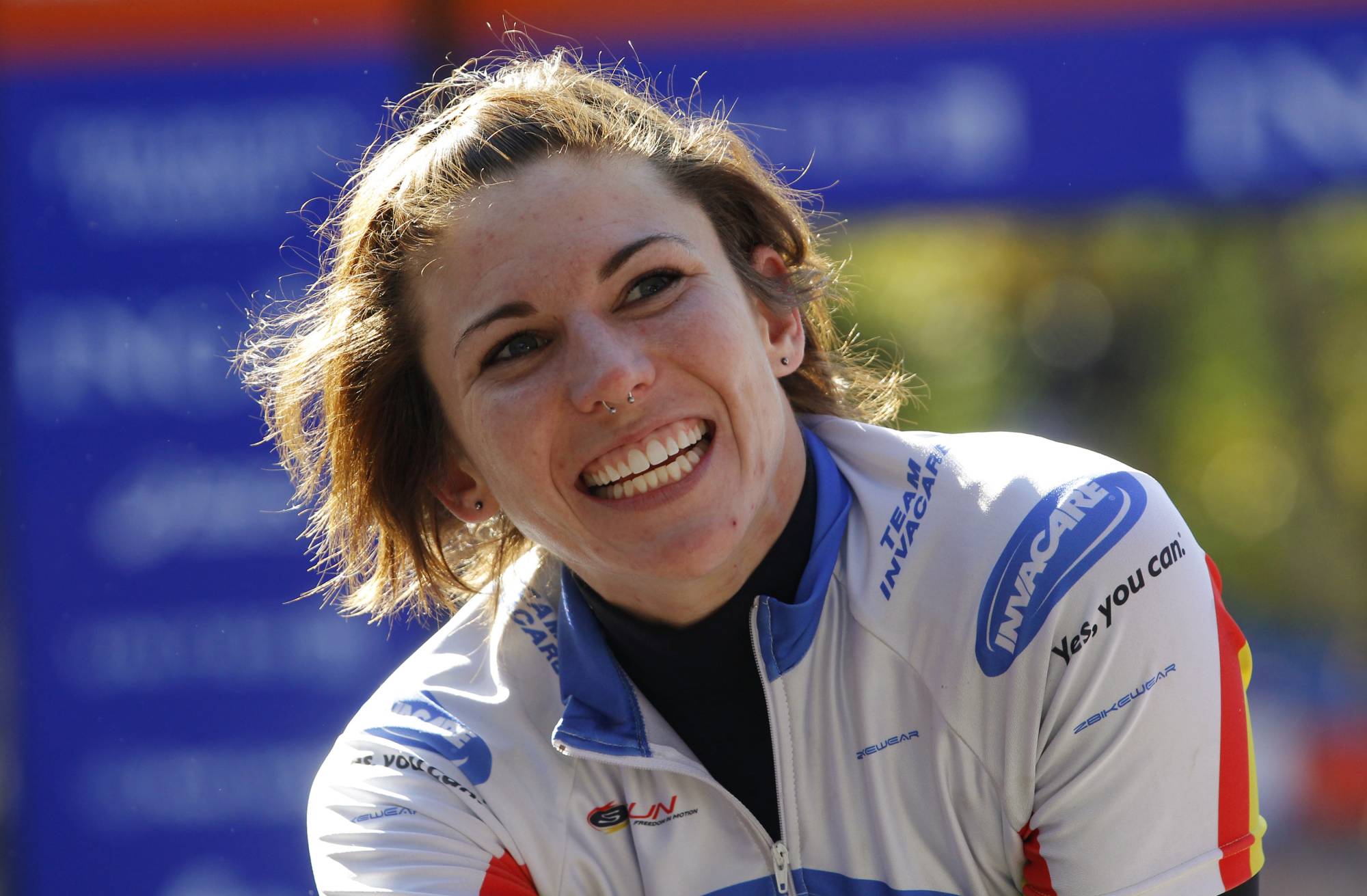
If McGrory is disappointed not to be able to explore Tokyo due to the protective anti-coronavirus “bubble,” it’s because she knows what she’ll be missing as she waits out the time between her competitions in the Paralympic Village.
As one of Honda’s sponsored athletes, McGrory has regularly visited Japan to participate in marathons and is confident that the Games will leave a lasting impact despite the restrictions — citing the progress Japan has made toward greater acceptance of para sports and awareness of disabilities in general.
“Even the first time that I went to Tokyo, I was super, super impressed with how accessible everything was,” she said. “I remember ... people telling me that they were doing a huge educational push to teach people about adaptive sports and the Paralympic Games and to work towards destigmatizing disability overall.
“I'm happy that (Tokyo 2020) is still happening ... but it is really sad because if this were the Tokyo that we were planning two or three years ago, it would have been absolutely incredible.”
While McGrory and her teammates may bring a few new items for the USOPC’s archives back from Japan, she admits that one famously popular souvenir likely won’t be among them.
“I have a department-wide moratorium on (lapel) pins at the moment, because my poor processing coordinator is up to her ears,” McGrory said. “They’re cool ... but they're so hard because we have thousands of them. And it takes me just as long to process a pin as it takes me to process Peggy Fleming's 1968 skating costume.”



